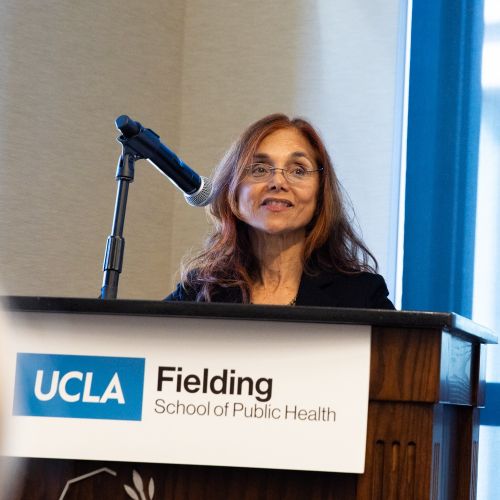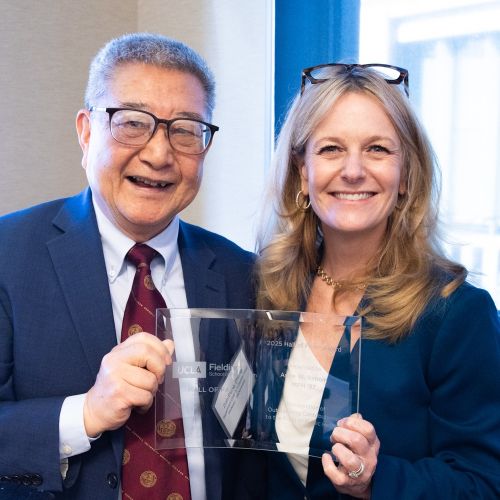Los Angeles Times | "The profound environmental health disparities between Latino and white neighborhoods in L.A."
Dr. Arturo Vargas Bustamante, professor in the UCLA Fielding School's Department, was interviewed by the Los Angeles Times

Dr. Arturo Vargas Bustamante, a professor in the UCLA Fielding School's Department of Health Policy and Management, was interviewed by the Los Angeles Times about a new data tool from researchers at UCLA highlights significant environmental health disparities between Latino and white neighborhoods in L.A., providing critical insights amid escalating public health concerns.
The Latino Climate and Health Dashboard, developed by UCLA’s Latino Policy and Politics Institute with support from the California Wellness Foundation, consolidates county-specific data on how Latino communities disproportionately suffer from extreme heat and air pollution. It compares Latino-majority (census tracts that have more than 70% Latino residents) and non-Latino white-majority (census tracts that have more than 70% non-Latino white residents) neighborhoods across 23 counties in California. The counties included in the study represent more than 90% of the state’s Latino population.
“Latino communities are on the front lines of climate change, yet they’ve often been left out of the data and decisions that shape public health and environmental policy,” Arturo Vargas Bustamante, a UCLA professor of health policy and management and principal investigator of the project, said in a news release. “This dashboard puts reliable, localized data directly into the hands of policymakers, advocates and residents so they can push for the equitable responses we urgently need.”
Read the Los Angeles Times article.

